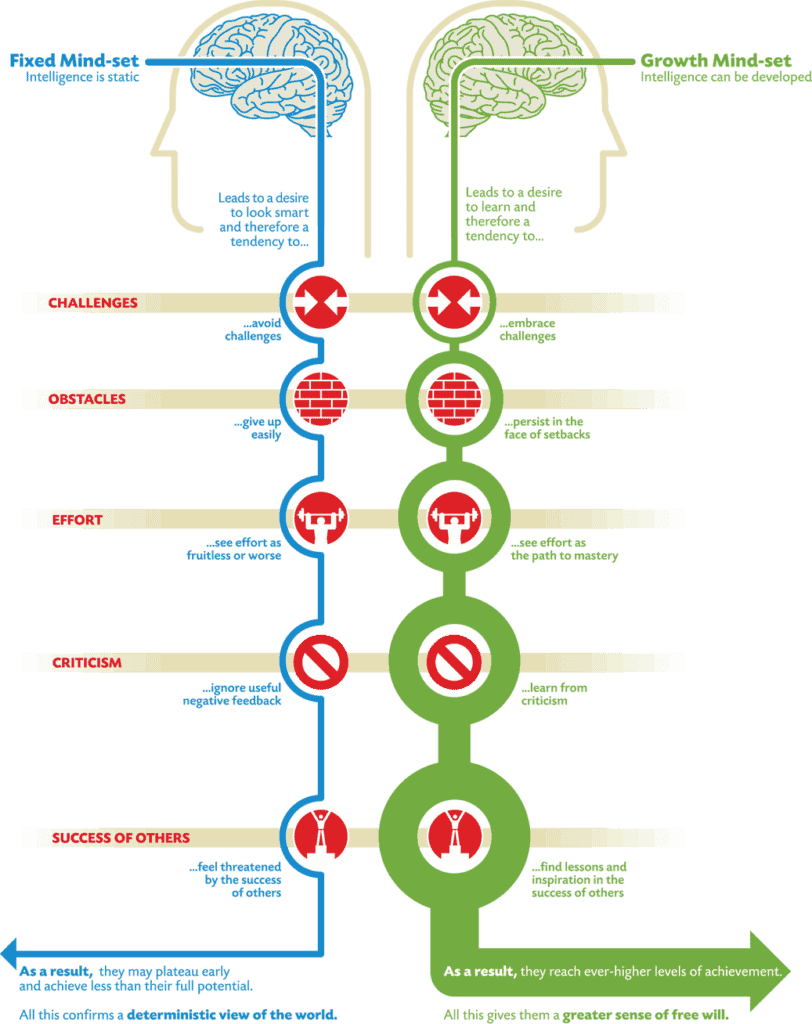
When Ross Bentley, a retired Indy car driver and world-renowned car racing coach discovered the work of Carol Dweck, an eminent Stanford psychologist, who has spent years studying human motivation, he was elated to find her research confirmed what he had discerned in his years of coaching race car drivers. Dr. Dweck has determined that there are two mindsets that influence our ability to achieve: A fixed mindset and a growth mindset.
“One of the things that’s fascinating to me is that someone with her knowledge has verified things that I’ve known. She brings a scientific approach and we’re able to give her real world experience. The majority of champion racing drivers have a growth mindset.”
~ Ross Bentley
He credits the growth mindset with enabling drivers to get into a state of flow, where they lose themselves in the act of driving.
Dr. Dweck’s book, “Mindset: The New Psychology of Success, brings her research to a wide audience. She explores and illustrates the tremendous impact that our beliefs about our capabilities and our intelligence have on our potential for learning, and consequently how we design our lives. As physicians, we may assume that we automatically fall into the growth mindset, given the nature of our careers which involves continuously meeting educational, training and practice challenges. Yet, looking closely at the graph below highlights how we may slip into a fixed mindset, particularly when under stress and facing moments of criticism or failure.

In fact, the not uncommon perfectionistic mindset found in many physicians is a prime example of a fixed mindset, where learning is shut down and the fear of being “wrong” or a making a mistake” can cause us to double down on our firm beliefs that there are fundamental limits regarding what can be learnt from a situation and what we can do to improve our performance. Unfortunately, the educational and training environment that physicians go through tends to reinforce this mindset. There is a movement in health education to begin using language and feedback that favors commenting on effort and diligence to encourage a growth mindset, as opposed to focusing on what may be perceived as the presence or absence of innate talent. This is not about lowering standards, but instead allows the focus to remain on continuous improvement and growth, rather than promoting an environment of diminishing self-efficacy and learning. The value of fostering a growth mindset in clinical settings, where there is a need for collaboration, teamwork and constructive solutions to reducing medical errors is not hard to see. In addition, creating supportive, learning environments would go a long way to reducing the shame, defensiveness, turning inwards, silence and inner suffering of physicians and other healthcare workers in demanding medical environments.

